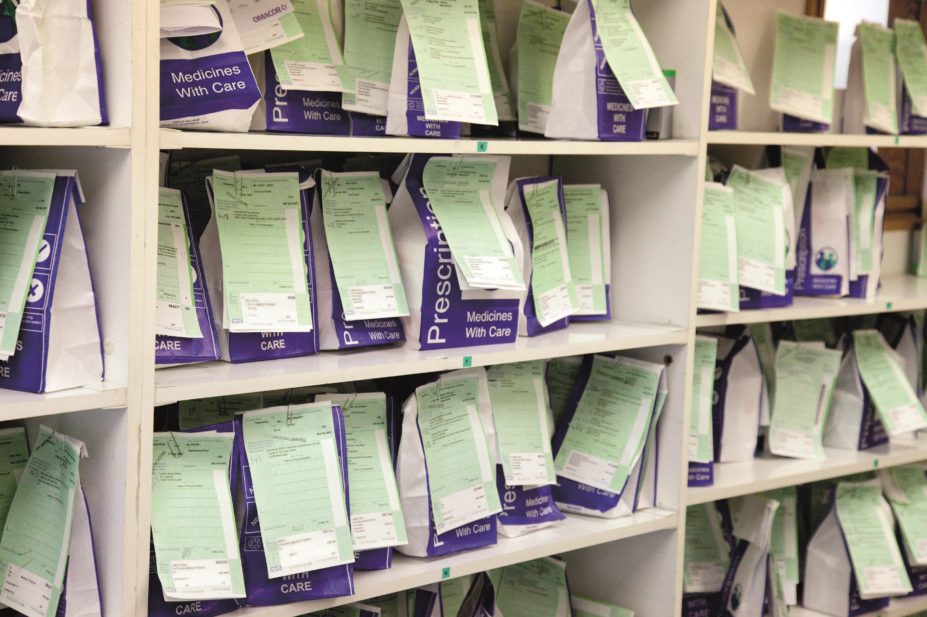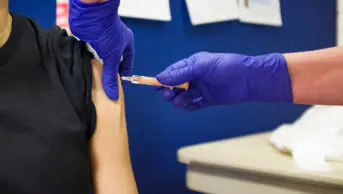
Kumar Sriskandan / Alamy
A leading think tank is advising the government to review prescription charges in England to raise an additional £1bn a year to help fund NHS and social care in future.
The King’s Fund has recommended cutting the prescription charge from £8.05 to £2.50. Under its proposals, medical exemptions and the low-income scheme would be abolished for all people, including pensioners, but no one would face a medicines bill of more than £104 a year, as seen with the current cap imposed with pre-payment certificates.
The proposals are contained in a report looking widely at how health and social care systems can be brought together in a better way. It recommends a ring-fenced budget for the NHS and social care, with a single commissioner for local services.
Some 1 billion prescriptions are dispensed annually in England, with around £450m raised from prescription charges in 2012–2013. The think tank notes that while 40% of the population are liable to pay the prescription charge, in practice 90.6% of prescriptions are dispensed free of charge.
Of the 9.4% of prescriptions that are paid for, 5.2% are through cash payments and the remaining 4.2% are covered by pre-payment certificates, which provide a cap on the maximum people have to pay. These certificates cost £29.10 for three months and £104 for a year.
The King’s Fund says certificates are a “considerable bargain” and the current charging regime “makes little sense”.
“Prescription charges may not be a popular part of the NHS but they are a long-established one. However, for someone who pays for their prescriptions and needs two or three medications at a time, the £8.05 charge per item is a significant sum. We believe there is a way to reform these charges that would, at the same time, raise some additional money,” says the report.
The report notes that the vast bulk of the income that the NHS currently receives from charges comes from two main sources – dentistry and prescriptions.
Dissent from pharmacy body
David Branford, the chairman of English Pharmacy Board at the Royal Pharmaceutical Society (RPS), the professional body for pharmacists, said taxing health based on wealth is “just plain wrong”.
“Older people typically require more medicines than most to maintain a good quality of life and should not be penalised because of their circumstances,” he says. “The proposal to make everyone pay a £2.50 prescription charge for each medicine merely extends this current unfair tax on health to everyone and heaps unfairness on top of illness.”
Branford says there is much evidence to show that prescription charges lead to individuals being selective about which medicines they purchase. This leads to inadequate treatment, worsening health and expensive hospital admissions, the cost of which must be set against any cost-savings from charges, he argues.
“If the government really wants to save money across the health service there are lots of ways the skills of pharmacists could be used much more effectively to make an impact on the bottom line,” he says. “Commission us to provide services which help reduce the burden on hard-pressed A&E and GP surgeries, enable us to reduce the amount of wasted medicines by spending more time with patients and let us lead on giving public health advice in pharmacies.”


